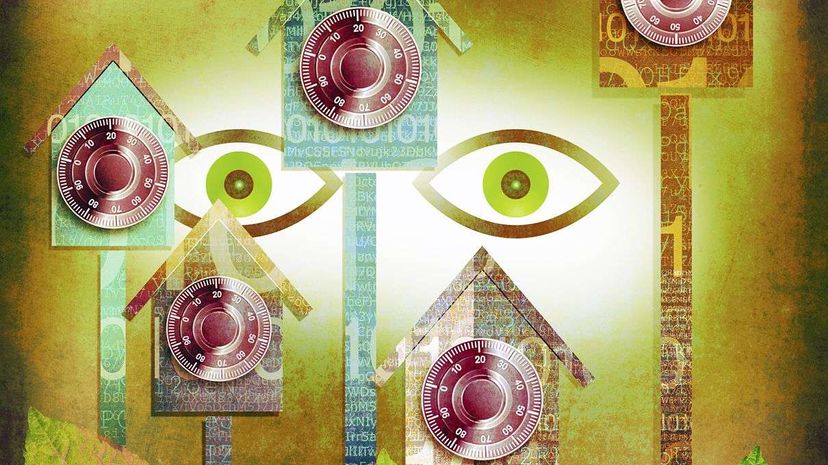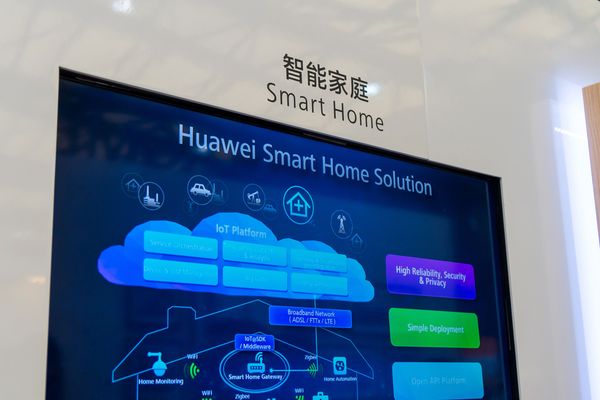
Across the United States, utility companies are rapidly transitioning from old-fashioned meters to electronic "smart" meters, which capture data on your electricity or natural gas use and transmit it wirelessly to the company's computers. The U.S. Department of Energy estimates that there are close to 60 million smart meters installed, and it's not hard to understand why utility companies like them. The devices eliminate the need for human meter readers to walk around and check every house individually, which saves a lot of money. But more importantly, smart meters enable utility providers to gather detailed, continuous data on how much energy you're using and when you're using it, which enables them to plan for electrical demand more precisely and adjust pricing to fit.
Activists who want to reduce our fossil fuel consumption to fight climate change tend to be big on smart meters as well. The Environmental Defense Fund, for example, sees smart meters as empowering consumers by providing them with a way to track their own energy consumption — and find ways to reduce it.
Advertisement
Smart meters also have the potential to communicate with gadgets throughout the home, via the Internet of Things, and find savings for consumers without them even noticing. Moreover, environmentalists see smart meters as an integral part of future smart grids, which will be fine-tuned to utilize energy from a host of renewable sources — everything from wind farms to solar panels on home roofs to the juice stored in the batteries of electric cars parked in driveways at night.
Smart Meter Doubters
That all sounds great, if you're a person who buys into the whole idea of a smart, wired future. But not everybody thinks that this is a great development. Across the U.S., some people are resisting the installation of smart meters, which they see as intruding upon their privacy, denying them free choice as consumers, making them vulnerable to hackers, and possibly even damaging their health.
In Maryland, for example, Mario and Assya Pascalev, a couple from the upscale Washington, D.C. suburb of Bethesda spent part of the summer without lights or air conditioning after Pepco, the local utility provider, shut off their juice because they declined to pay a $14 monthly penalty for refusing installation of a smart meter. They've since had their power restored, but the dispute continues, as Assya Pascalev explained in an email.
Pascalev says that she and her husband had a wide range of concerns about smart meters, most of which seem to be privacy-related. Collecting so much continuous data, she says, allows a utility company "to infer when and where the inhabitants are in the house, how they move around inside, what appliances they use and hence what they do. For instance, it could indicate if they are cooking, having a hot house in the backyard, or growing pot in the basement. If criminals hack into the data, this makes the home vulnerable to crime."
Health and Privacy Concerns
They're not the only ones. In Maine, smart meter opponents, who claimed that electromagnetic radiation from the meters could cause health problems ranging from cancer to chronic pain, fought a four-year battle with the Public Utility Commission, going all the way to the state's Supreme Court. (The justices ultimately upheld the commission's finding that the meters didn't pose a risk.) And in Phoenix, Arizona, where a local utility has been installing the meters since the mid-2000s, more than 20,000 people have refused installation.
Numerous anti-smart meter grassroots groups have sprung up to fight the future. In addition to fearing possible health risks, Maryland Smart Meter Awareness president Jonathan Libber sees the danger that data from smart meters will be used by marketers to push their products.
"If I sell ovens, I can get smart meter data and figure out who has an oven in their homes that's over five years old," he says. He's also concerned that police or other government agencies might obtain smart meter data from utility companies without a warrant. "They could see whether I was home at night, for example," he said. "There are some real civil rights issues."
Data Collection?
There's one flaw in the privacy-invasion allegations: Smart meters actually don't gather data continuously, but at intervals ranging from every 15 minutes to once a day, depending upon the particular technology that a company uses, according to a 2015 U.S. Energy Information Administration report. And they don't pinpoint where in the house energy use occurs, only the total usage. That would seem to make it difficult to use them for spying on consumers.
"Customer privacy is a major priority, and the data generated by smart meters is never shared without the permission of our customers," Marcus Beal, a spokesman for Pepco, the utility company that services the area where the Pascalevs live, says via email.
Even so, the issue of consumer privacy is sufficiently serious that some utility companies, wary of running afoul of state regulators, have kept the data under lock and key, even making it difficult for their own customers to monitor their use.
Radiation Risks?
As for health risks from smart meter radiation, though, the federal government's National Institute of Environmental Health Sciences notes that smart meters give off non-ionizing radiation, a low to mid-frequency type of wave of the sort that's given off by a whole host of modern gadgetry. It says that that studies show, at best, a weak association between non-ionizing radiation and illnesses, though scientists say more research is needed.
But the amount of radiation emitted by smart meters is relatively low. A 2011 report by the California Council on Science and Technology, a group that advises the California state government, found that at maximum levels, standing a few feet away from a smart meter generated about 1/25th of the radiation exposure that you might get from holding a mobile phone to your ear, and about a quarter of the dose from a microwave oven.
The Bigger Picture
Environmental activists, though, argue that those risks pale in comparison to the bigger health risks that we face from climate change and its effects, if we don't start using energy more efficiently and reduce our greenhouse gas output.
Jim Marston, who leads EDF's Climate and Energy Program, said in a statement emailed by EDF's media relations department that the health and environmental case for smart meters is stronger than the case against them.
"Over the next two decades, utilities across the U.S. will invest as much as $2 trillion to modernize our aging and inefficient energy infrastructure, creating a once-in-a-century opportunity to revolutionize how we generate, distribute and use electricity," he said.
"Smart meters offer a wide range of benefits to our customers, including the ability to restore their power more quickly if it goes out and to allow homeowners to harness solar power," Pepco's Beal said. "Customers with smart meters can save money by carefully watching their energy usage based on the data the meters provide."
Advertisement


